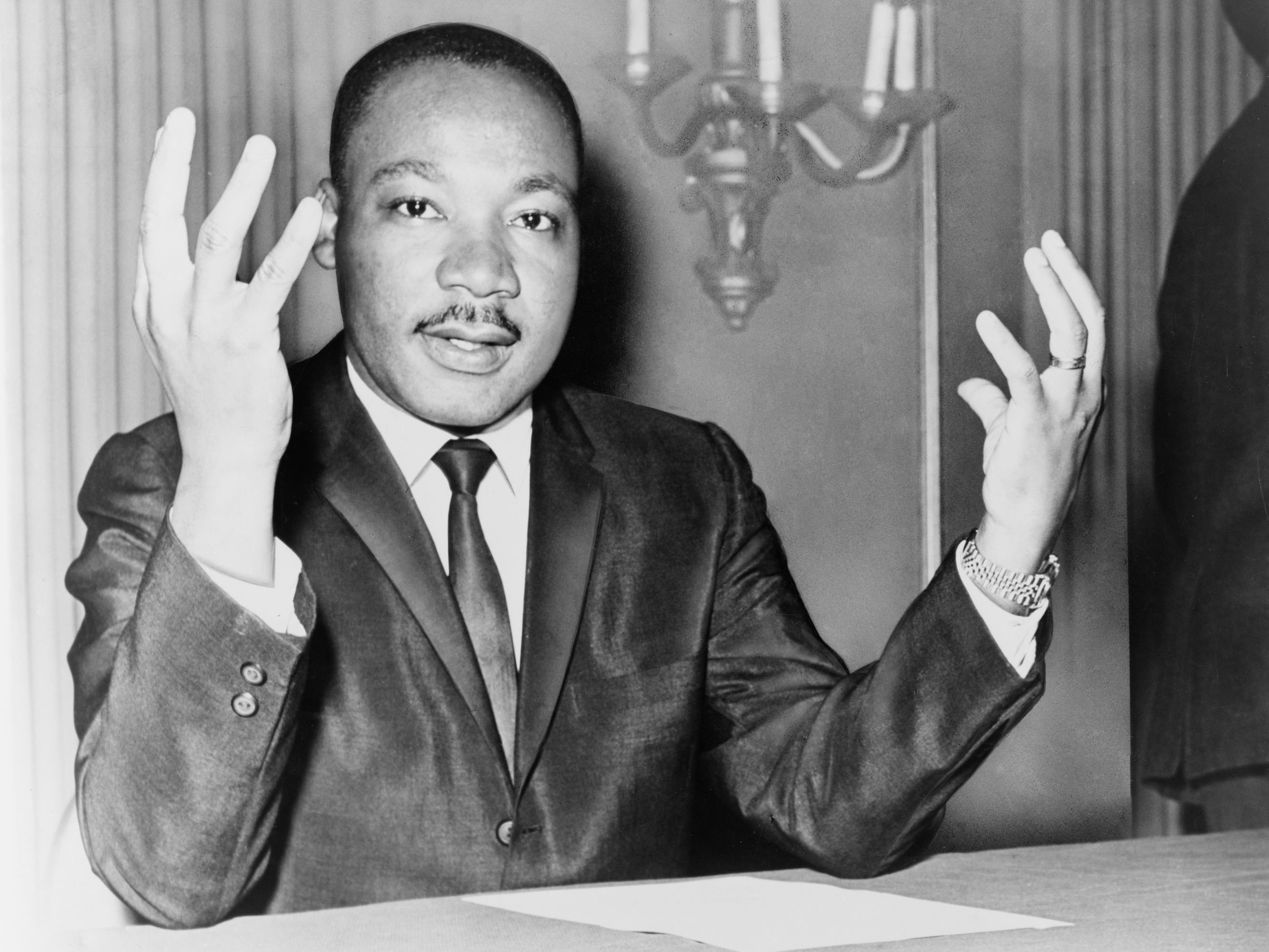
This story first aired on 2/18/2015.
If you’ve seen the movie “Selma,” you know that one of Martin Luther King Jr.’s favorite gospel songs was “Take My Hand, Precious Lord” by Thomas A. Dorsey. The late Mahalia Jackson sang it at King’s funeral in Atlanta in 1968. But among the other hymns performed that day at Ebenezer Baptist Church was one that King first heard in Denver in 1956.
“If I Can Help Somebody” was written in 1945 by a woman named Alma Androzzo, and it was recorded by various gospel groups, even by mainstream singers like Tennessee Ernie Ford and Doris Day. But it seems that King didn’t hear it until his visit to Denver.
King, says Vern L. Howard, chair of the Dr. Martin Luther King Jr. Holiday Commission, was in Denver to attend a Women’s Day program at New Hope Baptist Church in Park Hill. There, he heard “If I Can Help Somebody” performed by Anna Lee Williams, a classically trained soprano and the wife of New Hope’s then pastor, the Rev. M.C. Williams.
In a 1995 interview with The Denver Post, Anna Lee Williams said that King, after hearing the song, went back to Atlanta and told his mother, Alberta, that “Anna Lee had them jumping out the window” with her rendition of the song. He later encouraged Jackson, a close friend, to record the hymn, which she did in 1963. (After King’s death, Jackson included the song on her album “Mahalia Jackson Sings the Best-Loved Hymns of Martin Luther King Jr.)
“The song,” Howard says, “resonated with Dr. King. It was something that was deep in his heart. It stirred his soul.”
On Feb. 4, 1968, two months before he was assassinated, King gave a sermon called, “The Drum Major Instinct.” In it, he imagined his own funeral and said he wanted to be remembered for serving others, not for his fame or his many accomplishments. He ended the sermon by quoting from “If I Can Help Somebody.”
If I can help somebody as I pass along,
If I can cheer somebody with a word or a song.
If I can show somebody he’s traveling wrong,
Then my living will not be in vain.
The song will be performed on Sunday, Feb. 22, by the Spirituals Project Choir at the Lakewood Cultural Center, as part of a program called, “Singing for Freedom: 50 Years Since Selma.”








